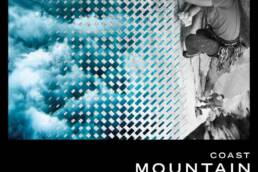For hundreds of years, a somewhat steamy sect of Indonesian Muslims gathered atop an island mountain to engage in carnal acts of supposed reverence. But then it got, well, even weirder. Staff editor Tara Cunningham explains.
Centrally located on Indonesia’s largest island of Java, Mount Kemukus, or Sex Mountain, might be considered small at 824 metres, but the number of orgasms that has rocked this peak is massive. Since the late 19th century, Javanese Muslim pilgrims have travelled to the mountain in droves to have sex with strangers — up to 8,000 pilgrims on its busiest days — which is supposed to bless them with good fortune. Recently, however, this religious custom drew unfavourable international attention, bringing the pilgrimage to a halt. One question kept emerging: how religious was this practice?
“Praise be to God, after coming here, even though I have a few debts, my business is making a bit of a profit,” says a female pilgrim and small-business owner in a 2014 Australian SBS News TV documentary called Sex Mountain.
“I just go there for the karaoke,” says another man in the film. In his village, the men told their women they were working away that weekend, but they were really travelling 300 kilometres to Mount Kemukus, some for weekend booty and others for the pilgrimage.
This is the custom: Have an adulterous affair atop Mount Kemukus on the favourable day of Jumat Pon on the Javanese calendar. Then exchange information with that stranger and meet in other places to have sex every 35 days for seven consecutive times to complete the ritual. Nowhere else in the Muslim world will you find a practice like this, as Islam prohibits extramarital affairs, with the exception of rules around slavery. Some explain that this unique Indonesian custom is due to the complexity of Javanese Islam itself, a religion influenced by Hinduism, Buddhism and Sufism (mystical Islam). But like most of the world’s Muslims, conservative Indonesian Muslims opposed Sex Mountain.
How did this strange and contradictory ritual get started? As the legend goes, Pangeran Samodro was the son of a famous king who fled to Mount Kemukus with his lover, who was also his stepmother. Both were reportedly killed in the middle of getting it on. It’s loosely explained that if pilgrims finished the sexual act Prince Samodro and his stepmom started, then prosperity would find them.
Until the 1980s, strangers had their quickies out in the open and then hostels with hourly rates started popping up, followed by vendors, karaoke bars and sex shacks all cashing in. The local government supported the pilgrimage and benefitted immensely from the entry fees and taxes they levied. But the religious motivation became cloudier. When the TV documentary aired, it raised questions about Muslim morality and exposed the mountain’s contribution to soaring HIV rates, as prostitutes flocked to Sex Mountain. (Indonesia is on a mission to close red-light districts and pledges to eradicate them by 2019). The documentary caused a scandal in Indonesia, and Mount Kemukus was promptly closed in 2014. But you know what they say about moderation: too much of a good thing can’t last.
Tara Cunningham
Tara has been KMC‘s senior editor and final-say wordsmith for over ten years, and CMC‘s associate editor since it was born. More recently, she’s been working with our writers, providing input to help shape their stories. Her expertise and attention to detail ensure the facts, grammar and spelling are purdy darn close to perfect issue after issue. When she’s not editing KMC, Tara also works as a freelance copy editor and proofreader and spends a lot of time dangling from rock, as well as raising a clever, littler version of herself.
Related Stories
Framed in Leavenworth With Coast Mountain Culture
This past weekend, CMC was on hand to sponsor and participate in Leavenworth's Framed Photographer Invitational, where…
Coast Mountain Culture Launches Premiere Issue
You may have seen a copy of the new Coast Mountain Culture Magazine (CMC) floating through outdoor veins throughout…
New Summer Issue of Coast Mountain Culture Days Away
It's at the printer getting printed, and we can't wait to drop our first ever summer edition, the Versus Issue. Stay…
The Gathering at Red Mountain
This upcoming Easter weekend RED and POWDER Magazine are presenting the 2nd annual Gathering at RED. Come hang with…
HH Big Mountain Battle – Fernie
Helly Hansen's Big Mountain Battle Series just wound up it's Revelstoke Mountain Resort stop, here's a look at the comp…






